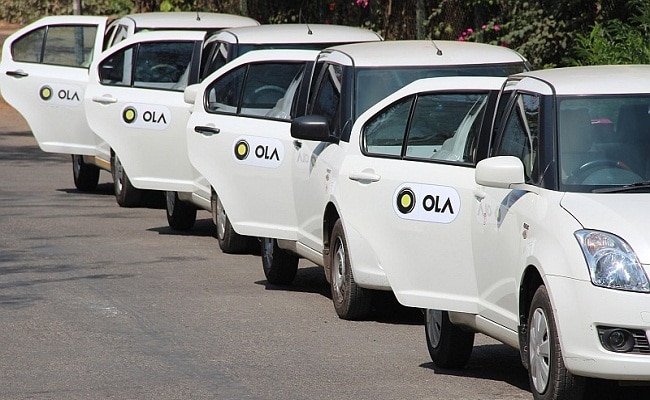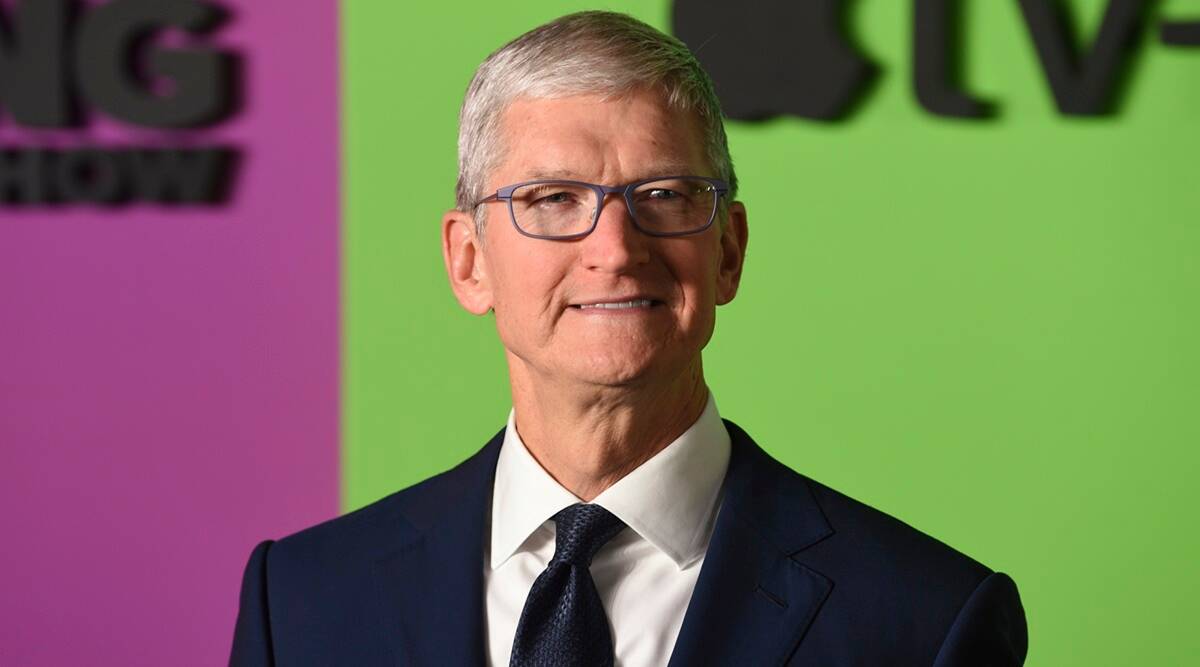Vijay Sharma founded Paytm parent One97 Communications over two decades ago.
Paytm was the poster boy for India's tech startups, only to lose two-thirds of its value since its IPO and become a symbol of the industry's crash. Now its founder promises a sharpened focus on financial performance to convince investors of the money-losing company's prospects.
The digital-payments provider is set to become India's first internet company to hit $1 billion in annual revenue by the end of this fiscal year in March, said Vijay Shekhar Sharma, 44. The brand, known formally as One97 Communications Ltd., is also shifting its attention from growth toward profitability, Sharma said in his first extensive interview following the high-profile public debut in November.
"We're earnestly chasing the $1 billion goal," he said during an hours-long conversation last week at Paytm's new chrome-and-glass headquarters in Noida, outside New Delhi, in a vast green expanse filled with wandering cattle. "For me, the public listing was a sort of graduation, and taking Paytm to break-even and to profits gives me a clarity of purpose."
Paytm's stock-price collapse exacerbated a crisis for India's startups, sending valuations plummeting as investors began to grow cautious about their earnings potential. Young firms -- dozens of which had hit unicorn status as capital flowed to everything from online retail to digital learning in the country of 1.4 billion -- suddenly saw their fundraising plans grind to a halt. To make matters worse, the war in Ukraine and fears of a global recession further clouded the picture for startups worldwide in 2022.
Describing his approach as a rewind-and-reset, Sharma is on a mission to win back investors. And he'll have his hands full: Paytm's operating losses widened over the past year to about $350 million, competition is intensifying and investors have lambasted the lack of clarity in the company's business model.
One step toward regaining trust is a demystifying of Paytm's revenue structure, said the founder, who is also the company's chief executive officer. He said its work can be simplified to two short lines: Paytm is in the business of payments, and it sells loans.
India's payments market differs from that of more developed countries, as it bypassed card-based systems popular in regions such as Europe and the US to jump directly from cash to mobile device payments. While that's attracted droves of contenders like Alphabet Inc.'s Google Pay, Amazon.com Inc.'s Amazon Pay and Walmart Inc.'s PhonePe, Sharma is confident Paytm's products -- some modeled on success cases in other markets -- will help it retain its leadership position.
Its Sound Box, for instance, is a $2-a-month subscription which instantly reconciles payments and announces a successful purchase via a speaker at the merchant's counter. Another product generates a unique QR code for each transaction and lets shoppers pay swiftly through Paytm's smartphone application as well as other apps -- a model already prevalent in China.
"I want to make Paytm the most relevant payments company of our times," he said, dressed in a checked shirt and blue jeans, seated in a conference room framed against a distant backdrop of high rises.
Vijay Sharma during the listing ceremony last November.
To expand Paytm's reach, Sharma has steadily ramped up its lending business. While taking on traditional banks is a challenge, Paytm is convinced it'll win over users in what is currently a credit-starved market.
In both payments and lending, Paytm has started to publish more metrics. It's revealed more data on users, revenue streams and loan disbursals, treating investors on par with board members -- and so far, the numbers have been beating internal expectations, Sharma said.
Sharma, who grew up the son of a teacher in the small town of Aligarh in central India, founded Paytm parent One97 Communications over two decades ago. The company began offering digital payments in 2014, and has since snared a who's who of global investors including Masayoshi Son's SoftBank Group Corp., Warren Buffett's Berkshire Hathaway Inc. and Jack Ma's Ant Group Co., growing into the country's most ubiquitous payments brand.
If the early years were challenging, this has been Paytm's most grueling phase ever. The IPO shone light on Paytm's business model, allowing investors to more closely scrutinize the company's earnings logic and valuation. The founder defended both, citing the successful listings of internet peers like Nykaa and Zomato Ltd. and bankers' advice on the maturity of Paytm's revenue model. Paytm plunged 27% on the first day and is currently down more than 60% from its IPO price.
"On hindsight, the pricing and the timing look haywire," said Sharma. "Used to private exits where things are a lot more under control, we weren't prepared for this."
In the past months, Sharma has told investors that his strategy will allow Paytm to reach operational break-even by September 2023. The company has slashed spending and is considering an exit from a pricey cricket sponsorship and terminating an agreement to acquire insurer Raheja QBE General Insurance.
"Earlier the team used to be like, 'Cricket sponsorship? that's so cool!' to now, 'How much money can we save if we gave that up?'" the CEO said.
Skeptics say profitability will remain an uphill battle. Analysts at Macquarie Capital Securities (India) Pvt., who were early to predict Paytm's stock decline, said in March that the shares would plummet further to 450 rupees. Sharma said board member and early investor Ravi Adusumalli, founder of Elevation Capital, recently told him he'd prefer $1 billion in profit over $1 billion in revenue.
Putting his money where his mouth is, Sharma said his personal stock grants will vest only after the shares stay sustainably above the IPO offer price.
"I'm going to be the last person to be paid in this company," he said. "One day soon, we will get our due."
(Except for the headline, this story has not been edited by NDTV staff and is published from a syndicated feed.)
Adblock test (Why?)
Paytm's Vijay Sharma Says Disastrous IPO Was "A Sort Of Graduation" - NDTV
Read More























